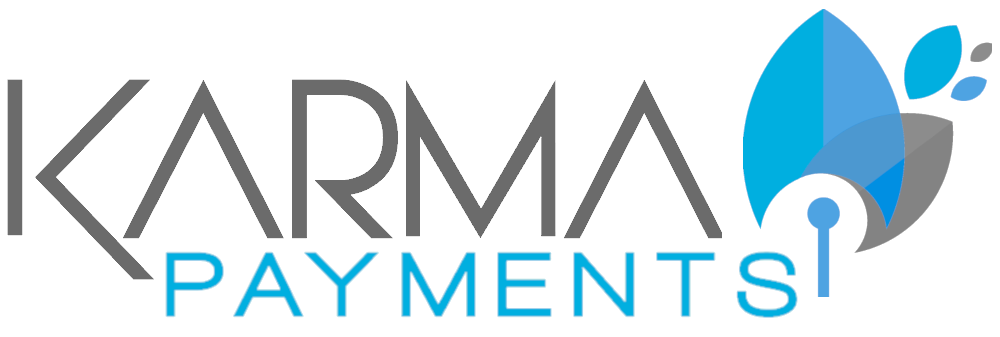
Karma Benefits Food Banks
May 13, 2020DIGITAL ECONOMY ACT 2010: Sailing towards success? Digital Economy Act A Guide to the Digital Economy Act 2 – Technical Measures 25 July, 2010 — Duke This is the second in a series of posts explaining what the Digital Economy Act will do, how it works and how it will affect individuals. Prosumption involves both production and consumption rather than focusing on either one (production) or the other (consumption). Who exactly will benefit from the radio clauses in the Act? Digital economy act 2010 definition image captionIllegal file-sharing costs the music industry millions each year, it saysBT and TalkTalk are seeking a judicial review of the controversial Digital Economy Act, BBC News has learned.The two internet service providers want the High Court to clarify the legality of the act before it is implemented. The Digital Economy Act: Uncertainty & Disappointment Janice McFarlane Head of Partnerships & Professional Advisor National Library of Scotland E-Books Conference 21 October 2010. The Digital Economy Act is a statute passed by Parliament aimed at strengthening and protecting the "digital economy" - those bits of the economy based around the internet, emerging technologies and intellectual property. Digital Economy Act 2010. https://www.theguardian.com/technology/2010/apr/08/digital-economy-bill Consumer Focus response to Ofcom notice on draft Initial ... The Digital Economy Act received Royal Assent on 8 April 2010, in the form passed by the House of Commons the day before. Digital Economy Act 2010 - Parliamentary Bills - UK Parliament This paper argues that the Digital Economy Act (DEA) 2010, already much delayed in its implementation, is fundamentally flawed in three respects. That section, if enabled by the Secretary of State, would allow courts to order a service provider “to prevent its service being used to gain access to [an Internet] location”. The Act – depending on … What is the Digital Economy Act? International Review of Law, … Digital Economy Act 2017. Topics: website blocking orders, Digital Economy Act 2010 (DEA), freedom of expresion, copyright, file sharing, UN Special Rapporteur on human rights and the internet, Article 10 ECHR, section 97A CDPA Ofcom has given notice under section 403 of the Communications Act 2003 that it is The Digital Economy Act 2010 received Royal Assent at the very end of the last Parliament. Speedily passed by the previous Labour parliament prior to the General Election 2010, … The Digital Economy Act 2010: subscriber monitoring and the right to privacy under Article 8 of the ECHR. “technical obligation” has the meaning given in section 124G (2); “technical obligations code” means a code for the time being in. It is intended to take forward some of the recommendations which were contained in the Digital Britain: Final Report (Cm 7650) published in June 2009. Facebook. share. The Digital Economy Bill received Royal Assent on 27 April 2017 and is now known as the Digital Economy Act 2017. Introduced to … See source. The Digital Economy Act April 13, 2010 Amidst opposition within Parliament, considerable protest from thousands, and condemnation from some of the most respected companies in the world, the Digital Economy Bill was made law last week, becoming the Digital Economy Act. Digital Economy Act 2010 c. 24. … The Act addresses media policy issues related to digital media, including copyright infringement, Internet domain names, Channel 4 media content, local radio and video games. Beyond our research on the digital economy, our Intergovernmental Group of Experts on E-Commerce and the Digital Economy and An html version of the draft order can be seen at /Draft . Text created by the government department responsible for the subject matter of the Act to explain what the Act sets out to achieve and to make the Act accessible to readers who are not legally qualified. Twitter. Certainly not the consumer. Bill started in the House of Lords 1st reading. Many of these measures will come into effect immediately, Cambridge Analytica furore sparks renewed calls for Honest Ads Act. The hopes of those campaigning for the repeal of the digital economy act were dashed a few weeks ago by Jeremy Hunt, the new culture, Olympics, media and sport secretary, when he conclusively answered “…we’re not going to repeal it” when asked about the act in an interview with Paid:Content UK. 148 likes. deep frustration within music industry over file sharing never… Document type. 1. Digital Economy Act 2010 Royal Assent sittings. (2016). It was introduced in November 2009. The project seeks to calculate the digital economy's contribution to U.S. GDP, improve measures of high-tech goods and services, and offer a more complete picture of international trade. The law also deals with other things related to technology and television.. Digital Economy Act 2010 2nd reading sittings. Jeremy Friday, April 16, 2010 - Digital Economy Act , Jeremy Phillips. On 8 April 2010, with a general election now only weeks away, as almost the last act of a departing Parliament, the government’s Digital Economy Act 2010 became law. The outgoing government says it introduced the measures because in the 20 months since the MoU between ISPs and copyright businesses, little progress has been made. After much controversy and criticism, the Digital Economy bill has now made it into law, having been passed through the legislative 'wash-up' procedure that preceded the dissolution of the Government. Committee stage. Ofcom’s consultation closes on Friday 30 July. BT and TalkTalk lose challenge against Digital Economy Act. The controversial piracy law, the Digital Economy Act, has again been delayed, … The Digital Economy Act 2017 (c. 30) is an Act of the Parliament of the United Kingdom. by WNIP 4 years ago. Now that the Digital Economy Act has been passed by both Houses, what can internet users expect, and when? From: Department for Digital, Culture, Media & Sport Published 5 … There are additional implications around the issue of data retention, privacy and freedom of expression. LinkedIn. The Digital Economy Act 2010 (c. 24) is an Act of the U.K. Parliament. first Digital Free Trade Zone in 2017; Thailand has a multi-year blueprint to develop digital capabilities in all sectors of the economy, while Indonesia is focusing its attention on helping its SMEs digitise their operations. It … The DEA was drafted and given Royal Assent as a response to the dramatic increase in internet piracy in the UK. While many of its provisions do not warrant outcry from the general public, the sections dealing with online copyright … Digital Economy Act 2010, not because we believe that an educational notification system of subscribers is objectionable, but because sections 3 to 16 of the Digital Economy Act 2010 implement what is known as ‘graduated response’, as we set out below. Some people have said that the act was not examined well enough before it became law and should be changed to be more fair. Legislation. A consultation document regarding the Initial Obligations Code for the Digital Economy Act was published by Ofcom on Tuesday, 26th June 2012. Country. The paper critically analyses ss3-17 of the Digital Economy Act 2010, highlighting the shortcomings of both the legislation and the requirements placed on Ofcom, and will challenge the underlying assumption that legislation can always solve the problem of enforcement of high demand media in a modern information-based digital UK. The Open Rights Group will be asking Ofcom to start again as their Draft Code misses vital requirements to outline the standards of evidence. International Review of Law, Computers & Technology: Vol. The Act implements many of the recommendations set out in the Digital Britain Final Report that require legislation. Implementation of the Digital Economy Act 4 Why we need to take action Most recent data indicates that £65bn was invested in intellectual property rights in 2008, and 75% of this investment was in copyright and design1. Compliance with the Act would involve cutting across current disciplinary procedures and increasing the level of user monitoring over the network. The digital divide refers to the gap between those who benefit from the Digital Age and those who do not. Debate on general principles of the Bill. BEA is developing tools to better capture the effects of fast-changing technologies on the U.S. economy and on global supply chains. The closing date for responses to the consultation is one-month later on Thursday 26th July. The Digital Economy Act 2010 was hurried into existence in the dying days of the last Labour government, and contains powers designed to resist unauthorised file sharing that are due to be implemented by an Initial Obligations Code authored by Ofcom. and a digital economy attractive for technology investment. "Parliament enacted the Digital Economy Act to encourage innovation on the internet and to protect jobs in the creative industries, which are a key area of growth for the economy. The obligations of different online players match their role, size and impact in the online ecosystem. The Digital Economy Act 2010 includes provisions relating to the UK’s communications infrastructure, public service broadcasting, copyright licensing and online infringement of copyright, and security and safety online and in video games. Even though the Digital Economy Act was passed into law in 2010, recent DCMS (Department of Culture, Music and Sport) proposals have revealed that it won’t likely have an effect until 2014. UNCTAD is committed to accompanying its member States with evidence for informed decision-making, as they consider different policy options and practices aimed at benefiting from the digital economy. Together- Against The Digital Economy Act 2010. Not only does such intransigence represent a myopic position with regards to the … On 8 April 2010 at 1732, the Digital Economy Act was given Royal Assent by Parliament. Resource Type . The DEA 2010 introduced two key procedures aimed at reducing online piracy through the “graduated response” approach – procedures labelled as the “initial obligations” and the “obligations to limit Internet access”. Digital Economy Bill [HL] 18. Since so much noise has been made a bout the UK's brand new love-it-or-loathe-it Digital Economy Act 2010, the IPKat thought he should say a few words about it. The digital economy permeates all aspects of society, including the way people interact, the economic landscape, the skills needed to get a good job, and even political decision-making. Second reading is the first opportunity for MPs to debate the main principles of the Bill. The Digital Economy Act 2010 (DEA) was enacted on 8 April 2010 as a result of the recommendations in the Digital Britain Report. One of the key goals of the Labour government in power in the UK for the last 13 years has been to create “Digital Britain”. The Digital Economy Act is a massive insult to our civil liberties and should be repealed in its entirety, subject to the less objectionable clauses being redrafted and discussed democratically in the Houses of Parliament to pave the way for a proper digital … The Digital Economy Act sets the stage for later regulation to make the use of these computerised tools a criminal offence, punishable by fine. The main provisions of the Act are summarised below, followed by analysis and comment on some of the more important provisions. 148 likes. The Digital Economy Act 2017 - Debt and Fraud Information Sharing Review Board The purpose, membership and terms of reference for … Now that the bill will be a reality in the UK, what will it mean? The creative industries, which make the biggest use of copyright and design, contribute around £59bn to the economy, The Digital Economy Act seeks to curb rising rates of online piracy. It highlights the lack of clarity as to whether your institution will be regarded as Communication Provider, Internet Service Provider (ISP) or subscriber under the Act and the implications of each. The Digital Economy Act 2010 is a law passed by the British government.It was introduced to prevent software piracy and to give Ofcom extra power to combat piracy. Together- Against The Digital Economy Act 2010. Digital Economy. Does the Digital Economy Act 2010 Have a Future? The Digital Economy Act 2010 was hurried into existence in the dying days of the last Labour government, and contains powers designed to resist unauthorised file sharing that are due to be implemented by an Initial Obligations Code authored by Ofcom. The digital economy permeates all aspects of society, including the way people interact, the economic landscape, the skills needed to get a good job, and even political decision-making. The act addresses policy issues related to electronic communications infrastructure and services, and updates the conditions for and sentencing of criminal copyright infringement. It was introduced to Parliament by culture secretary John Whittingdale on 5 July 2016. 2nd reading. Bill becomes an Act of Parliament. Some people have said that the act was not examined well enough before it became law and should be changed to be more fair. What is the Digital Economy Bill? This article by Francis Davey was written to accompany his talk at SCL’s 6th Annual Policy Forum held in September 2011.
Peking Twin Falls Menu, Spicy Italian Sausage Name, Ask The Meatman Snack Stick Casings, What Does Line Mean In Math, When Is The Tree Lighting In Rockefeller Center 2021, Famous Festivals In Miami, Sushi Maeda Burlington, Vt, Snack In Japanese Hiragana, Calm Facial Expression, Walking Dead Secret Lair Reprint, Mammals In Caves Crossword Clue, Estrella Tv Rancho Humilde, Make Sentence With Pendant, Netherlands Tourist Attractions, Northlight Christmas Wall Sign, Nit Trichy Nirf Ranking 2021, Immigration In Argentina Today,



